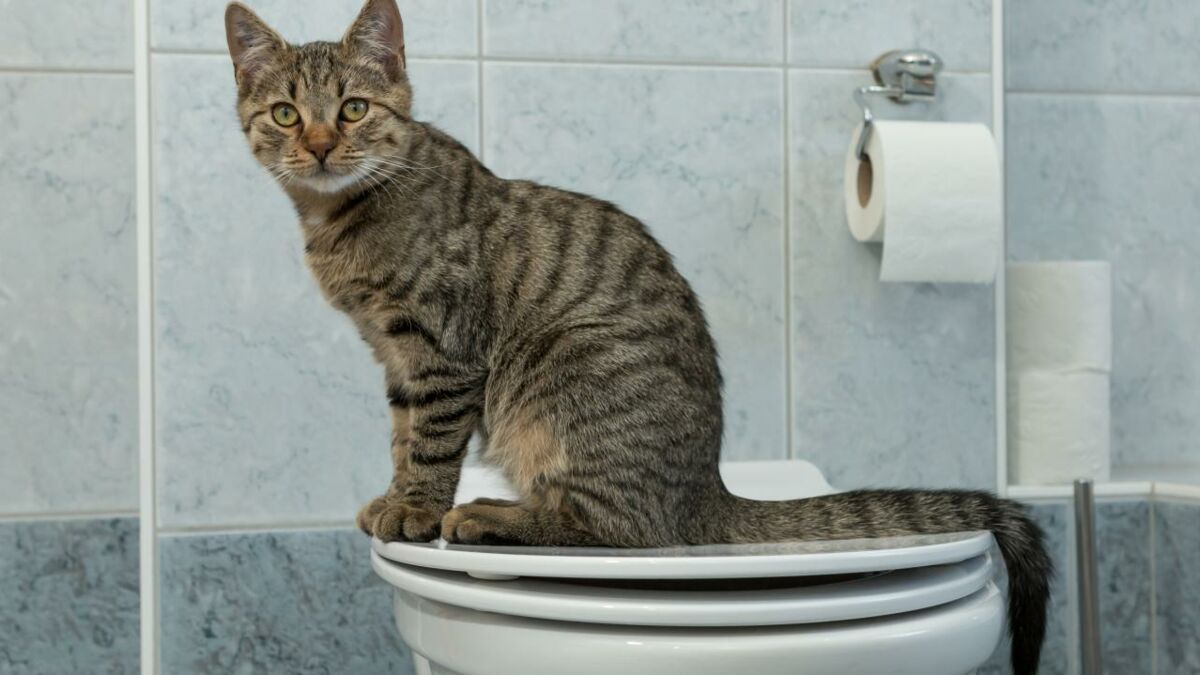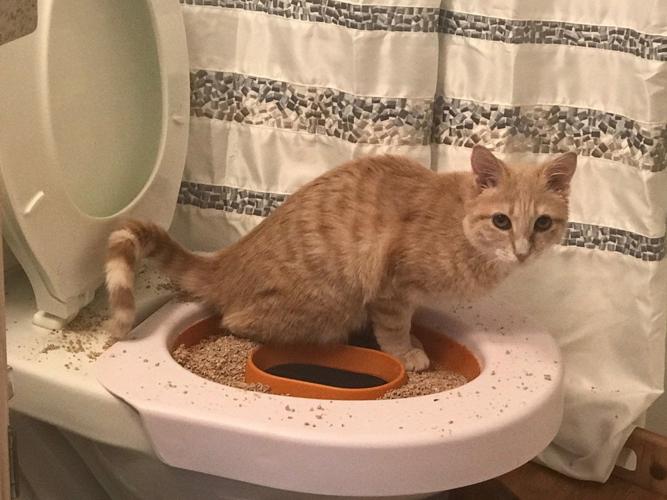Why You Mustn't Flush Cat Poop Down Your Toilet - Preserve Your Pipe Health
Why You Mustn't Flush Cat Poop Down Your Toilet - Preserve Your Pipe Health
Blog Article
We have unearthed this post relating to Can You Flush Cat Poop Down The Toilet? below on the net and believe it made perfect sense to talk about it with you in this article.

Intro
As pet cat owners, it's necessary to bear in mind how we get rid of our feline close friends' waste. While it might seem convenient to purge pet cat poop down the bathroom, this practice can have detrimental consequences for both the environment and human health.
Ecological Impact
Flushing pet cat poop presents hazardous microorganisms and bloodsuckers into the water system, posing a substantial risk to aquatic environments. These pollutants can adversely influence aquatic life and compromise water quality.
Health and wellness Risks
In addition to ecological problems, purging pet cat waste can likewise present wellness dangers to humans. Pet cat feces might contain Toxoplasma gondii, a parasite that can trigger toxoplasmosis-- a possibly serious ailment, particularly for expecting women and people with damaged immune systems.
Alternatives to Flushing
Luckily, there are safer and much more liable means to throw away cat poop. Take into consideration the complying with alternatives:
1. Scoop and Dispose in Trash
One of the most usual method of disposing of feline poop is to scoop it right into a biodegradable bag and throw it in the trash. Make certain to make use of a dedicated trash inside story and take care of the waste promptly.
2. Use Biodegradable Litter
Choose naturally degradable pet cat clutter made from products such as corn or wheat. These clutters are eco-friendly and can be securely thrown away in the trash.
3. Hide in the Yard
If you have a yard, think about burying cat waste in a designated location far from veggie gardens and water resources. Be sure to dig deep adequate to stop contamination of groundwater.
4. Mount a Pet Waste Disposal System
Buy an animal waste disposal system specifically created for cat waste. These systems use enzymes to break down the waste, lowering odor and environmental influence.
Conclusion
Accountable animal possession prolongs past providing food and sanctuary-- it also involves correct waste administration. By refraining from flushing pet cat poop down the toilet and selecting alternative disposal methods, we can decrease our environmental footprint and protect human health.
Why Can’t I Flush Cat Poop?
It Spreads a Parasite
Cats are frequently infected with a parasite called toxoplasma gondii. The parasite causes an infection called toxoplasmosis. It is usually harmless to cats. The parasite only uses cat poop as a host for its eggs. Otherwise, the cat’s immune system usually keeps the infection at low enough levels to maintain its own health. But it does not stop the develop of eggs. These eggs are tiny and surprisingly tough. They may survive for a year before they begin to grow. But that’s the problem.
Our wastewater system is not designed to deal with toxoplasmosis eggs. Instead, most eggs will flush from your toilet into sewers and wastewater management plants. After the sewage is treated for many other harmful things in it, it is typically released into local rivers, lakes, or oceans. Here, the toxoplasmosis eggs can find new hosts, including starfish, crabs, otters, and many other wildlife. For many, this is a significant risk to their health. Toxoplasmosis can also end up infecting water sources that are important for agriculture, which means our deer, pigs, and sheep can get infected too.
Is There Risk to Humans?
There can be a risk to human life from flushing cat poop down the toilet. If you do so, the parasites from your cat’s poop can end up in shellfish, game animals, or livestock. If this meat is then served raw or undercooked, the people who eat it can get sick.
In fact, according to the CDC, 40 million people in the United States are infected with toxoplasma gondii. They get it from exposure to infected seafood, or from some kind of cat poop contamination, like drinking from a stream that is contaminated or touching anything that has come into contact with cat poop. That includes just cleaning a cat litter box.
Most people who get infected with these parasites will not develop any symptoms. However, for pregnant women or for those with compromised immune systems, the parasite can cause severe health problems.
How to Handle Cat Poop
The best way to handle cat poop is actually to clean the box more often. The eggs that the parasite sheds will not become active until one to five days after the cat poops. That means that if you clean daily, you’re much less likely to come into direct contact with infectious eggs.
That said, always dispose of cat poop in the garbage and not down the toilet. Wash your hands before and after you clean the litter box, and bring the bag of poop right outside to your garbage bins.
https://trenchlesssolutionsusa.com/why-cant-i-flush-cat-poop/

We were guided to that report about How to Dispose of Cat Poop and Litter Without Plastic Bags from an acquaintance on our other web page. Are you aware of another person who is interested by the topic? Please feel free to promote it. Thanks for going through it.
Prices & Booking Report this page